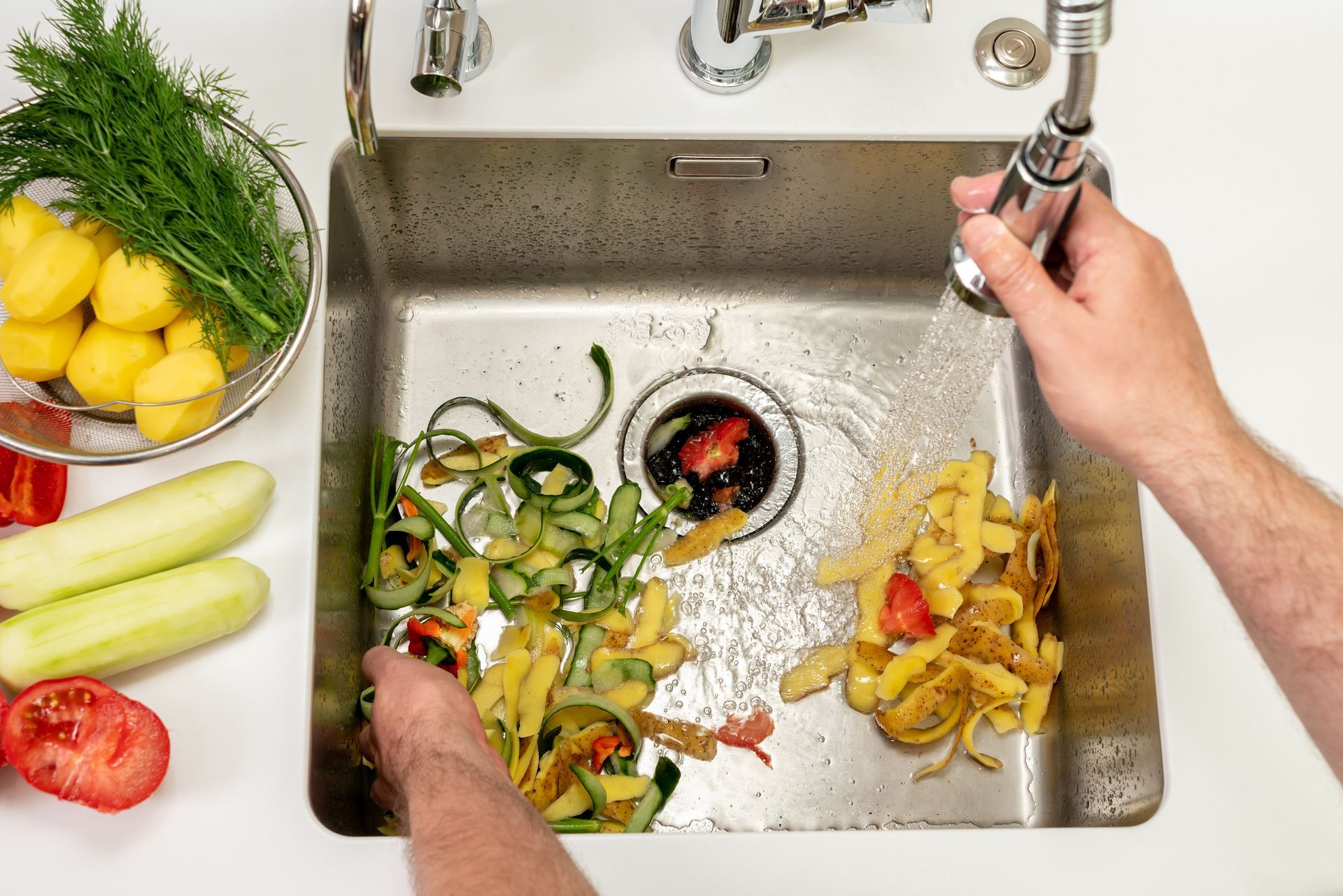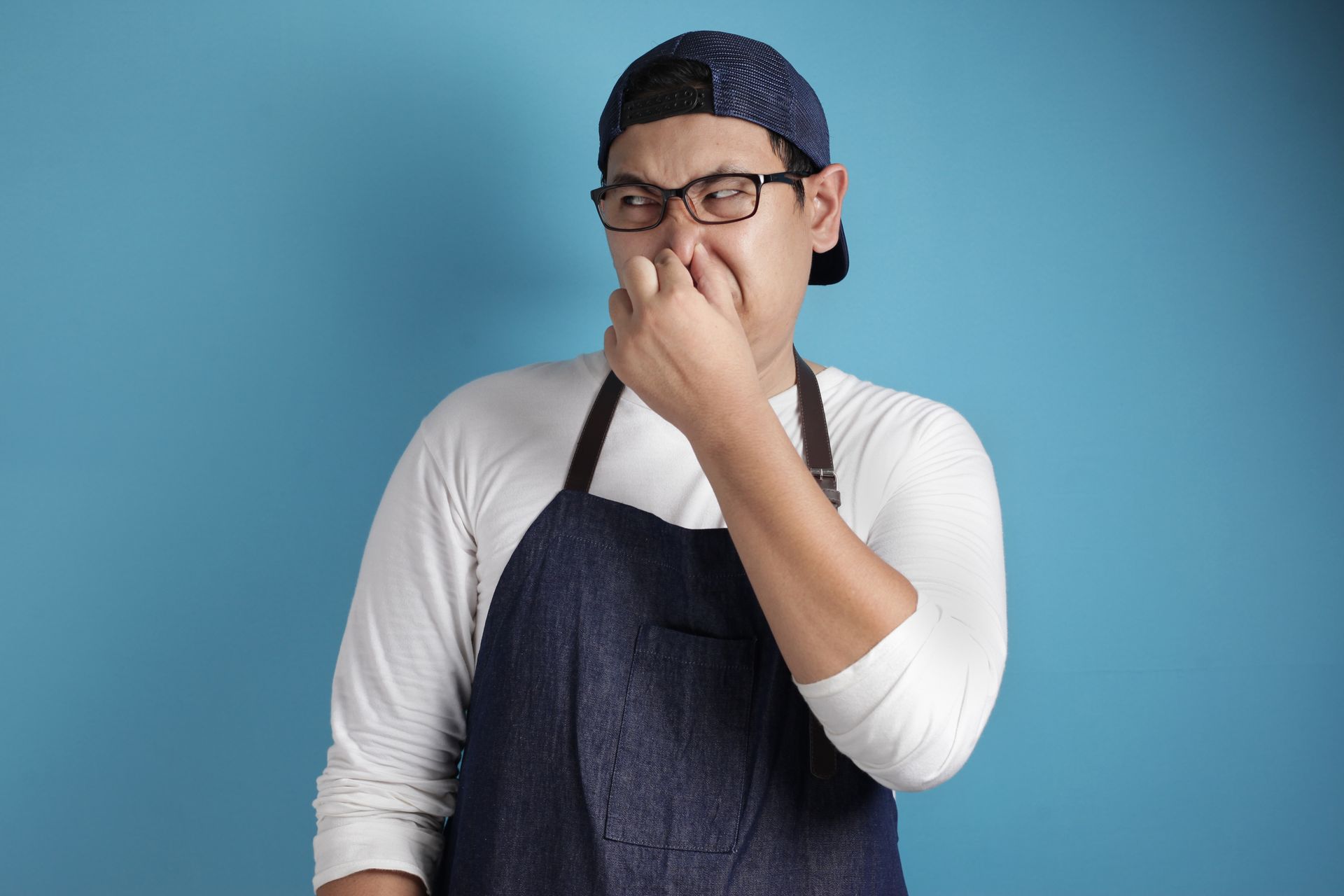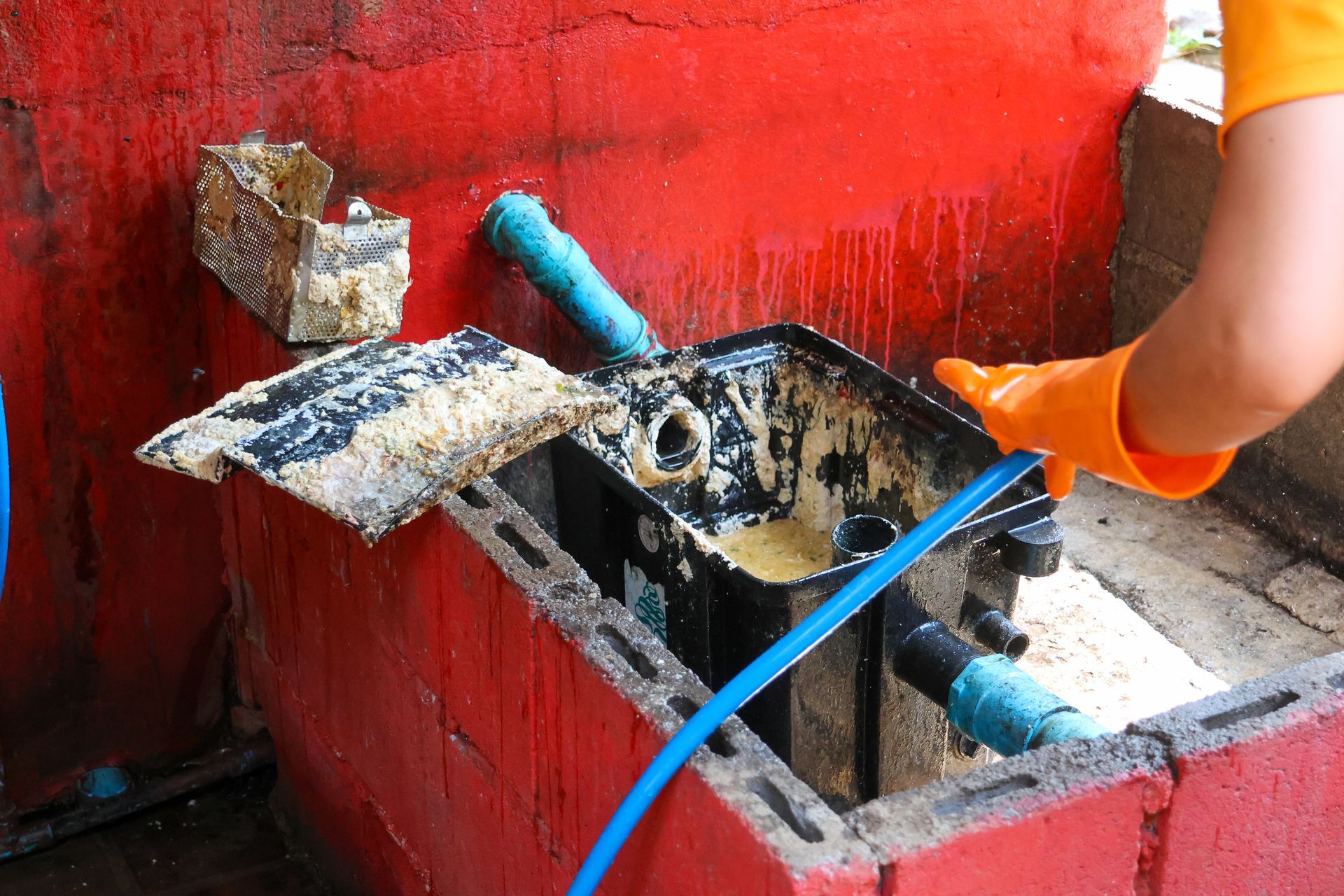The Importance of Training Staff on Proper Food Waste Disposal

In the fast-paced environment of a commercial kitchen, managing food waste efficiently is critical. Proper disposal methods not only ensure the smooth operation of the kitchen but also help reduce the buildup of fats, oils and grease (FOG) in grease traps and drainage systems.
Left unchecked, food waste and FOG accumulation can cause clogs, sewer blockages and even environmental damage.
What Should and Should Not Be Washed Down the Drain
One of the most common mistakes made in commercial kitchens is improper waste disposal. In the rush to clean up after food preparation, it's tempting to rinse everything down the drain, but this practice leads to the rapid accumulation of FOG in your grease traps and strains your plumbing system. Here's a breakdown of what should and should not be washed down the drain in a commercial kitchen.
What Should Not Be Washed Down the Drain
- Oil and Grease: Even if they seem to flow easily when hot, oil and grease will solidify as they cool, sticking to the insides of pipes and causing blockages. This buildup can restrict water flow, eventually leading to major plumbing issues and the need for expensive repairs.
- Large Food Scraps: Buy and ensure your team is always using scrap/pre-rinse baskets in sinks used for dishwashing and encourage employees to scrape food from plates, pots and pans before washing them. Large food particles can easily clog pipes and contribute to FOG buildup in grease traps. Train staff to use trash bins for food scraps instead of sending them down the drain or through the dishwasher.
- Dairy Products:
While dairy products may seem harmless, they can contribute to FOG buildup when washed down the drain. The proteins and fats in dairy can cause similar issues to cooking oils when they solidify, contributing to blockages over time.
- Coffee Grounds: Coffee grounds may appear small and harmless, but they can cause significant issues for your drainage system. They tend to clump together and can easily accumulate in pipes, creating blockages.
What Can Go Down the Drain
- Water:
It may seem obvious, but only water should go down the drain without question. Ensure that staff rinse off dishes and equipment with cold water before running them through dishwashers to reduce the amount of grease entering the system.
- Minimal Food Residue:
After scraping off plates and pots, a small amount of food residue that can't be removed with a scraper can be washed down the drain. However, this should always be minimized as much as possible to avoid strain on your grease traps and plumbing.
- Diluted Cleaning Solutions: Mild, biodegradable cleaning agents and detergents can typically be washed down the drain, but it's best to avoid using harsh chemicals or large quantities that can harm your plumbing or the environment.
Best Practices for Reducing FOG Accumulation
Reducing the rate of FOG accumulation in your grease traps requires consistent effort and training. Staff members should be well-informed on best practices so that grease traps function properly, reducing the likelihood of clogs, foul odors and costly repairs.
Scraping Plates
Encourage staff to scrape plates, pans and cooking utensils before washing them. This practice reduces the amount of food waste and FOG that enters the drainage system, keeping pipes and grease traps cleaner for longer periods. Use designated scraping areas with garbage bins or compost stations to make this a habit.
Stay Compliant With Watershed Management Grease Trap Cleaning Requirements
Grease traps are essential for preventing FOG from entering the municipal sewer system. However, they require regular maintenance to function properly. Schedule routine cleanings to make sure that your grease trap is performing at its best and isn’t running afoul of local ordinances. If your kitchen produces a high volume of grease, more frequent cleaning may be necessary to prevent blockages and overflows.
The Environmental Benefits of Proper Food Waste Disposal
The proper disposal of food waste, particularly FOG, has a ripple effect that extends beyond the immediate benefits of regulatory compliance. By reducing the amount of FOG entering your drains, you help protect local water systems and prevent environmental contamination.
FOG-related sewer blockages can cause raw sewage overflows, which have a disastrous impact on local ecosystems. They can pollute water sources, harm wildlife and lead to costly clean-up efforts. By taking proactive steps to reduce FOG accumulation in your kitchen, your business contributes to the overall sustainability of the community.
Eco-Friendly Grease Trap Cleaning and Fryer Oil Recycling in Atlanta, GA
At Southern Green Inc., we specialize in eco-responsible grease trap cleaning and waste oil recycling. Get a quote for one-off grease trap cleaning and maintenance or learn about our cleaning contract options by calling (404) 419-6887!
Recent Blog Posts
Contact us Today for a FREE Quote
We are committed to making grease trap cleaning and fryer oil recycling as clean and easy as possible. If you’d like to learn more about our services or get a quote, give us a call at (404) 419-6887.



